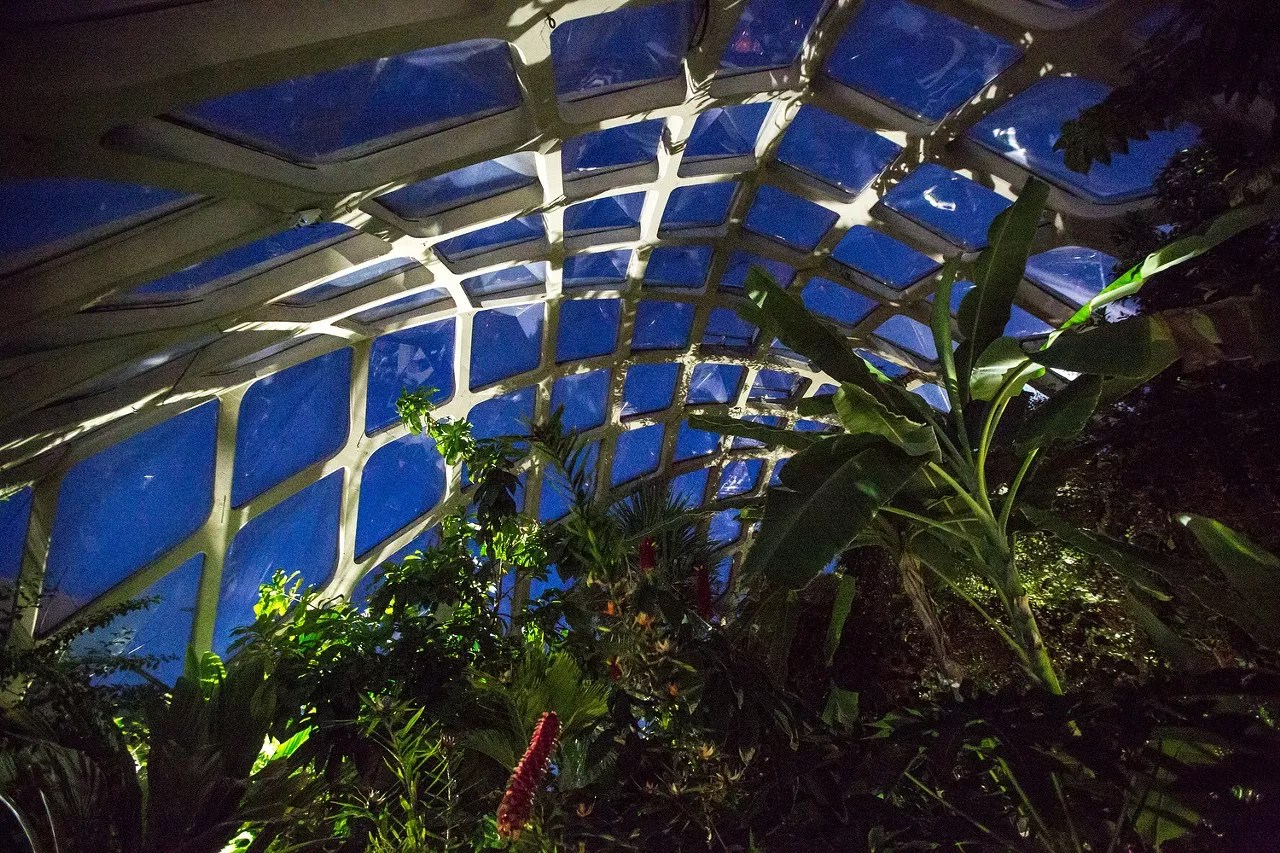
Danielle Lirette

Audio By Carbonatix
The Denver Botanic Gardens spans 24 acres, with seventeen gardens showcasing plants that thrive in Colorado’s arid climate – and that’s only counting the main location on York Street. The Denver Botanic Gardens also runs Chatfield Farms, a 700-acre native-plant refuge and working farm in Jefferson County, as well as a conservatory for alpine plants and bristlecone pines on Mount Evans.
Those areas “reflect an ever-widening diversity of plants from all corners of the world,” according to the organization, while also focusing on local flora.
So why no hemp…or even marijuana?
The reason for marijuana’s exclusion is understandable: The plant is still illegal federally, and the DBG doesn’t want to get caught up in a political mess. But hemp, which is legal to grow in Colorado under both state and federal law, thanks to 2014’s Farm Bill, is still left out of the mix.
A common crop centuries ago, hemp is a growing industry these days; industrial production has skyrocketed over the past few years, and much of that is taking place in Colorado. In 2016 and 2017, Colorado accounted for more acreage dedicated to growing hemp than any state in the country, according to the Vote Hemp organization, nearly reaching 10,000 acres last year. And with the introduction of high-CBD strains, hemp flowers can be just as visually striking as their THC-laden counterparts.
Despite Colorado’s quickly growing affinity for hemp, the DBG won’t be featuring the plant in its exhibits any time soon. A week of back-and-forth messaging with its communications staff didn’t net much elaboration.
“We do not grow hemp at York Street or Chatfield Farms,” explains communications manager Erin Bird. “Since we do not grow marijuana, it is natural that we would also not grow hemp. We have no plans of growing it at the Gardens.”
But while the DBG continues to ban hemp, other botanical institutions are starting to come around.
Last summer, the University of Colorado Boulder and the Rocky Mountain Society of Botanical Artists teamed up for an exhibit showcasing botanical illustrations of marijuana and hemp, with artist Susan Fisher even taking some hemp seeds home so she could try growing them. Fisher, who had a hard time persuading some of her colleagues to participate because of the stigma surrounding hemp and marijuana, says she understands why the DBG would abstain from controversy. “There must be huge controversy over how to interpret a hemp exhibit to the public. So many people go right to the [drug argument] without realizing this is different,” she explains. “It’s in the ‘it’s not worth the trouble’ basket. Too bad, to not get this useful plant back into cultivation, where it can do so much good.”
However, the DBG wouldn’t be the first botanic garden to grow marijuana or hemp if it chose to. In 2014, London’s Kew Gardens included cannabis as part of a mind-altering plants exhibit, while the University of Virginia and George Washington’s Mount Vernon have recently partnered to grow hemp on the founding father’s estate – just as George Washington himself was reported to have done.
Colorado industrial-hemp farmer Gabe Rimey says he loves and appreciates the DBG’s botany education, calling it “an incredible space to learn.” But Rimey, who farms high-CBD hemp plants in Douglas County, believes the DBG could educate visitors even further.

Gabe Rimey tends to his CBD-rich varieties of hemp inside his greenhouse cultivation in Franktown.
Courtesy of Homestead Organics
“I have always wondered why they don’t grow cannabis or hemp for educational purposes. I’m not talking plots of it, but just a plant or two so that people can simply enjoy the botany of it. I mean, grow a high-THC cultivar and a hemp plant right next to each other, and no one would know the difference – but we could educate people on the selective breeding of the cannabis plant for certain cannabinoids,” he explains. “They’re growing hemp on Mount Vernon, so why not in an educational garden in the state that revolutionized the modern cannabis industry?”
Colorado isn’t the only state to welcome hemp; Oregon, Washington, Kentucky and Tennessee, among others, have all jumped into the hemp trade. We couldn’t find any botanic gardens in the aforementioned states that are growing hemp or marijuana (reach out if you know of one), but the plant’s exclusion could be part of a stylistic choice at botanic gardens that place heavy value on ornamental horticulture, according to Paul Cappiello, executive director of Yew Dell Botanical Gardens in Louisville, Kentucky.
“There are many botanic gardens out there that present exhibits and conduct research on economic botany or horticulture, and for those institutions, hemp is a natural. But for us it doesn’t fit very well within our mission,” he explains in an email. “Our display gardens are designed for maximum visual impact, and we focus on accomplishing that with plants that are highly sustainable – pest resistant, requiring minimal inputs (fertilizer and supplemental irrigation, etc.) – and showing excellent adaptability to our climate.”
Cappiello doesn’t totally dismiss the idea of adding hemp, though: “Now, if we came across a dwarf, red-leafed hemp plant with bright-yellow buds that didn’t seed around and was highly drought-tolerant…we’d be all over it!”
While DBG horticulturists don’t have any plans for adding hemp to their collection, they will teach you how to add it to yours. Educational classes on growing hemp were offered over the summer, Bird points out, with students learning over a six-hour course how to prepare hemp clones and care for them.
Will those courses be offered next year? The summer 2019 schedule for the Denver Botanic Gardens won’t be out for several months. Watch botanicgardens.org for updates.